Affiliated Postdoctoral Fellows & Visiting Scholars
The Center welcomes the following post-doctoral and visiting scholars from other programs as affiliates of the CSGS. Students should view the schedule for more information on their courses crosslisted with GNSE and those they may teach in the Core. Postdoctoral fellows are also eligible to advise B.A. and M.A. theses.
Post-doctoral scholars are listed alphabetically by school/division - Arts & Humanities, Divinity, and Social Sciences.
Arts & Humanities
Devon J Borowski 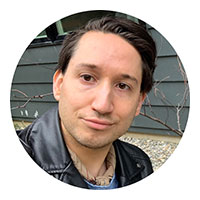
he/him
Teaching Fellow in the Department of Music and in the College 2023–2025
Ph.D., Music History and Theory, University of Chicago
devonjborowski@uchicago.edu
Devon J Borowski received his PhD in Music History and Theory from the University of Chicago in 2023. His research interrogates the relationship between song, as a material practice and an object of knowledge, and constructions of race, gender, sexuality, and class. His current book project investigates eighteenth-century singing cultures and colonial discourses of voice, humanity, and history in late Georgian Britain, especially as they relate to the aesthetics of Camp, gothic horror, and Orientalism. Devon’s research has been supported a Predoctoral Fellowship for Excellence through Diversity at the University of Pennsylvania and an Alvin H. Johnson AMS 50 Dissertation Fellowship from the American Musicological Society. He was the LGBT Studies Research fellow at Yale University (2020) and a Stuart Tave Humanities Teaching fellow at the University of Chicago (2019). Other research interests include the castrato, early modern critical race studies, and queer singing communities.
Laura Colaneri 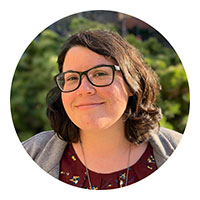
she/her/hers
Teaching Fellow in the Arts & Humanities 2023-2025
Ph.D., Romance Languages and Literatures, University of Chicago
lcolaneri@uchicago.edu
Laura Colaneri received her Ph.D. in Romance Languages and Literatures from the University of Chicago in 2023 and holds certificates from the University of Chicago in Latin American and Caribbean Studies and Gender and Sexuality Studies. Her research interests include Southern Cone literature; dictatorship, authoritarianism, and political violence; cultural studies; horror and Gothic literature and film; and women's literature and gender and sexuality studies. Her current book project, provisionally titled Las Fuerzas del Mal: Esoteric Imaginaries amid the Occult Necropolitics of Latin American State Terror, examines depictions of Latin American state-sponsored violence as akin to occult practices in twentieth and twenty-first century literature and film. She also examines contemporary women’s literature in Latin America, particularly the use of the horror and Gothic genres to depict political and personal violence against women and femicide.
Tanya Desai 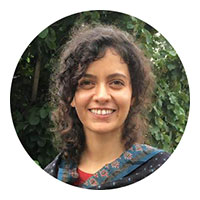
she/her
Teaching Fellow in the Arts & Humanities 2023-2025
Ph.D., Cinema and Media Studies, University of Chicago
tanyad@uchicago.edu
Tanya Desai received her PhD in Cinema and Media Studies from the University of Chicago in 2023. Previously, she completed her MA and MPhil in English Literature at the University of Delhi. She works on the philosophy of film, particularly on topics of language, time, narrative, and gender. Her current book project is on Bombay cinema of the 1950s, examining the convergence of film and poetry in its iconic songs and exploring the philosophical issues these songs raise about the relation between body and voice, between the self and the world, and between words and lives. Apart from Stanley Cavell’s ordinary language philosophy and South Asian cinema, her other research and teaching interests include gender and skepticism in literature and film, global classical cinema, aesthetic theory, film comedy, animal studies, moral philosophy, and psychoanalysis.
Titas De Sarkar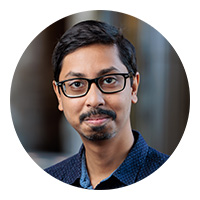
he/him/his
Teaching Fellow in the Department of South Asian Languages and Civilizations and in the College 2024-2026
Ph.D., South Asian Languages and Civilizations, University of Chicago
titas@uchicago.edu
Titas De Sarkar received his PhD from South Asian Languages and Civilizations at The University of Chicago in 2024. His dissertation is a contribution to the histories of masculinity in colonial and postcolonial India. It focuses on the figure of the Bengali elder brother —referred to as the Dādā—and how a gendered form of address has come to attain an overwhelming range of meanings in the public and political domains in India. More broadly, his intellectual interests lie at the intersection of cultural history, gender studies, youth culture, and media studies. He is scheduled to teach 'That Age-old Debate: Youth Cultures in Modern India' in Winter 2025 and 'Creative Forces: Cultural Feminisms in Postcolonial India' in Spring 2025.
Beatrice Fazio
she/her/lei
Teaching Fellow in the Arts & Humanities 2024-2026
Ph.D., Romance Languages and Literatures, University of Chicago
bfazio@uchicago.edu
Beatrice earned her PhD in Romance Languages and Literatures from the University of Chicago in 2024. Her research and teaching focus on late medieval and early modern Italian literature and culture, with particular attention to humanism, the Italian lyric and epic traditions, women’s writing, and the intersections between literature and science, as well as between texts and the conceptualization of physical space from Dante to Baroque epics. Her additional interests include the modern reception of Renaissance and early modern literature, especially in the works of Giacomo Leopardi. She is currently developing two book projects and several articles, including a chapter in progress that examines the intertwined roles of gender, geography, and Christian spirituality in a seventeenth-century Italian epic poem.
Christina Filippaki
she/her/hers
Teaching Fellow in the Arts & Humanities 2024-2026
Ph.D., Classics, University of Chicago
cfilippaki@uchicago.edu
Christina Filippaki received her PhD in Classics from the University of Chicago in 2024. Previously, she completed her BA in Classical Philology at the University of Athens. She specializes in Greek tragedy, focusing on questions of genre, gender, fictionality, intertextuality, and metapoetics. Her broader interests include drama, the depiction and reception of female tragic characters, performance, myth and modern Greek reception. Her current book project uses theory of fiction to show that Euripides’s Atreidai plays as a multiverse narrative: a set of alternate, complementary, or contradicting timelines that are to be understood in the context of each other. By framing the plays as connected but mutually incompatible realities, it argues that the tragic is the result of a complex cognitive process that involves a continuously expanding intellectual relationship between the poet and his audience.
Kevin Irakoze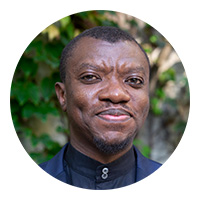
he/him/his
Teaching Fellow in the Arts & Humanities 2024-2026
Ph.D., Philosophy, University of Chicago
kirakoze@uchicago.edu
Kevin Irakoze received his PhD in Philosophy from the University of Chicago in 2024 with graduate certificates in gender and sexuality studies as well as college teaching. He works primarily in practical philosophy at the nexus of ethics and political philosophy. One of his current research projects is a critique of queer belonging. He reads performances of antiqueer violence in Africa, for example the exhumations of dead queer individuals, to reveal the original and culture-specific forms of harm they seek. The work is set against studies which theorize the point of death as the apex and end of (antiqueer) violence. By paying close attention to performances of extreme violence, we are better able to imagine culture-specific modes of queer belonging and resistance.
Leland Jasperse 
he/him
Arts & Humanities Teaching Fellow 2023-2025
Ph.D., English, University of Chicago
ljasperse@uchicago.edu
Leland Jasperse received his PhD in English from the University of Chicago in 2023. Broadly, his research and teaching focus on the aesthetic mediation of historical shifts in embodiment and embodied norms, with particular attention to gender, sexuality, disability, and racialization. His current book project takes up fin-de-siècle texts that fail to achieve erotic and narrative drive in an historical moment that saw the compulsorization of sexuality. Emerging from this work is a second project examining how queer illness writing grapples with the paradox of aesthetically rendering anaesthetic experience (e.g. chronic fatigue, chemotherapy, losses of appetite and sex drive), complexly navigating, on the one hand, liberal visibility-oriented disability paradigms, and, on the other, queer theory's political and generic fetishization of limitless drives. He teaches in the Humanities Core (Media Aesthetics) and the Department of English.
Gary Kafer 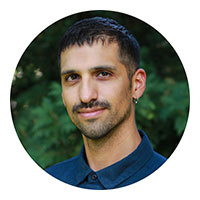
he/him/his
Arts & Humanities Teaching Fellow 2023-2025
Ph.D., Cinema and Media Studies, University of Chicago
gkafer@uchicago.edu
Gary Kafer is a digital media studies scholar that examines the politics of twenty-first century surveillance culture. He conducts research and teaching within digital media studies, science and technology studies, critical data studies, video game studies, and visual studies. Focused on surveillance systems, his work examines how digital technologies reproduce existing power relations through data-based processes. In particular, he brings into conversation critical data studies and theories of race, gender, and sexuality to explore how computational systems reinforce social inequities within broader regimes of capitalist, colonial, and imperial power. His first book project interrogates how the media concept of ubiquity glosses over the uneven ways in which state and corporate agents develop and use surveillance systems to distribute visibility and violence. His broader publications engage surveillance studies from the lens of queer theory. Gary received his PhD in Cinema and Media Studies from The University of Chicago in 2023.
Stephanie Kraver 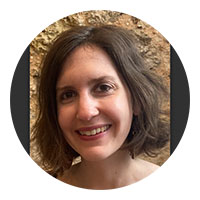
she/her/hers
Arts & Humanities Teaching Fellow 2023-2025
Ph.D., Near Eastern Languages and Civilizations, University of Chicago
skraver@uchicago.edu
Stephanie Kraver received her Ph.D. in Near Eastern Languages and Civilizations from the University of Chicago in 2023. She is a scholar of modern Arabic literature and Arabic and Hebrew poetry and poetics from the twentieth century to the present. Her research and teaching interests sit at the intersection of Palestinian/Israeli literature and film, gender and sexuality studies, trauma theory, and anticolonial theory. At the University of Chicago, she served as a doctoral fellow in the Pozen Center for Human Rights and an affiliated fellow in the Franke Institute for the Humanities. Her current book project identifies how poetic verse creates imaginative and political possibilities beyond the limits of ethno-national borders and separatist ideologies. The monograph tells the story of two poets: the celebrated Palestinian author Mahmoud Darwish and the renowned Israeli writer and peace activist Dahlia Ravikovitch. By tracing their relationship and poetry over the course of two decades, the project locates the hopeful potential of poetry amid everyday violence and the politics of poetic form.
Sarah-Gray Lesley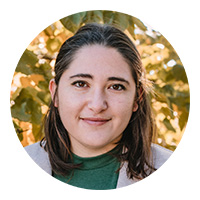
she/her/hers
Teaching Fellow in the Arts & Humanities 2024-2026
Ph.D., English Language and Literature, University of Chicago
sglesley@uchicago.edu
Sarah-Gray Lesley is an Arts & Humanities Teaching Fellow in the English Department and College at the University of Chicago, where she is working on her first book, "Consuming Womanhood: Reproduction, Consumption, and the Formation of White Femininity in Early Modern England." In it, she argues that the cultural construction we know as white womanhood emerged, in part, through co-constitutive representational strategies in early modern English fiction that cast white women as the bearers of white futures and the buyer and arbiters of the nation’s growing taste for international goods. Her work has appeared or is forthcoming in journals such as Renaissance Drama, Restoration Studies, and Studies in English Literature 1500-1800. She leads courses on the notions of "bad motherhood", the romantic comedy, and the relationship between gender and food cultures across early modern English works.
Sarah McDaniel 
she/her/hers
Teaching Fellow in the Arts & Humanities 2023-2025
Ph.D., English, University of Chicago
sarahmcd@uchicago.edu
Sarah McDaniel received her PhD in English Language and Literature from the University of Chicago in 2023. Her research and teaching interests center upon Gender and Sexuality Studies, Queer Theory, and modern and contemporary LGBTQ+ life-writing, with a particular interest in correspondence. Her current book project, “Queer Correspondence: Epistolary Form and LGBTQ+ Life-Writing,” argues for “queer correspondence” both as a genre of queer life-writing operative across the long twentieth century and as an interpretive methodology. Her new projects explore parent-child epistolarity (through a study of contemporary published “open letters”) and queer “endurance” (in the context of queerness and sport).
Rivky Mondal 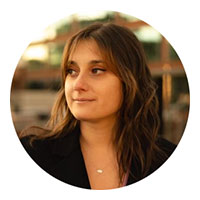
she/her/hers
Arts & Humanities Teaching Fellow 2023-2025
Ph.D., English, University of Chicago
mondal@uchicago.edu
Rivky Mondal holds a PhD in English from the University of Chicago. She is a scholar of human interaction who examines how uncertainty manifests intra-socially in novels about modern encounters and relationships. Her first book is about 20th- and 21st-century novels which pay special attention to the “micro-social” dimensions of gender, race, and class, particularly the processes by which gesture, affect, and unspoken understanding scale out and in as signs of difference. Through readings of Henry James, Nella Larsen, and William Faulkner, as well as Sally Rooney and Raven Leilani, the project analyzes canny literary devices, and the ensuing interpretative issues, for registering “mean difference” — that is, the capacity of the “minor,” the contingent, and the petty to crystallize asymmetrical realities; and the challenge of securing meaning to difference’s latent and incoherent expressions. Rivky focuses on many of the same themes and problems in her teaching, and has offered a course on the feminist & queer historical avant-garde and practices of archival recovery, which was recognized with a Stuart Tave Course Design Award for innovative and inclusive teaching.
Gabriel Ojeda-Sague
he/him/his
Arts & Humanities Teaching Fellow 2024-2026
Ph.D., English, University of Chicago
gaboj@uchicago.edu
Gabriel Ojeda-Sagué is a poet and scholar, currently working as an Arts & Humanities Teaching Fellow at the University of Chicago. His research focuses on gay men’s literary and media cultures, with a specialty in the aesthetics of gay pornography. His peer-reviewed work has appeared in the journal Porn Studies, and is forthcoming in TSQ: Transgender Studies Quarterly, and the volume The Sex Scene: Space, Place, Industry from Edinburgh University Press. As a poet, his most recent book is Madness (Nightboat Books, 2022). His dissertation, "The Gender of Gay Men: Identification, Sexual Cultures, and the Afterlives of the Inversion Model," studies how gay male sexuality has provoked gendered positions, conflicts, and identifications through the 20th and 21st centuries.
Sharvari Sastry 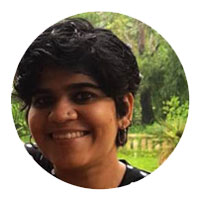
she/her
Harper Schmidt / Collegiate Assistant Professor 2022-2026
Ph.D., South Asian Languages and Civilizations & Theater and Performance Studies, University of Chicago
sharvarisastry@uchicago.edu
Sharvari is a Harper-Schmidt postdoctoral fellow, and teaches in the Arts Core in the College. Her research probes the unruly entanglements between live performance and recorded history, with a regional and discursive focus on South Asia. She is interested in tracing how gender, sexuality, and caste-based essentializations are articulated and historicized through performance. Her book project, Performances of Posterity: Theater, Archives and Cultural Regulation in Modern India excavates processes of cultural preservation and appropriation with respect to minoritarian performance cultures in the Maharashtra region, specifically tamasha and lavani, and tracks how these forms come to be denigrated, censored, reformed, reclaimed, and reinvented in accordance with prevailing political and social aspirations. She is currently working on a critical-creative project about the telephone – exploring how the telephone’s technological, sociopolitical and performative history constellates questions of gender and sexuality, in the Indian subcontinent and beyond.
Divinity School
Olivia Bustion 
she/they
Teaching Fellow 2023-2025
Ph.D., Theology, University of Chicago
obustion@uchicago.edu
As a constructive theologian, I develop new theological models in conversation with feminist, queer, and disability theories to reveal what prior models obscure and to address contemporary issues of wider social concern. My current book project draws on historical discourses about the Spirit to rethink agency and personhood as emergent features of friendships rather than aptitudes of individuals. This book is the first stage of a larger research agenda that asks how systematic theology—despite its reputation as rigid and abstract—might be an accomplice in dismantling oppressive systems.
Hannah Jones 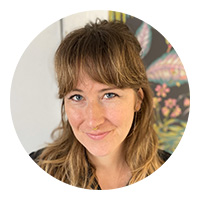
she/her/hers
Teaching Fellow in the Divinity School and the College 2024-2026
Ph.D., Theology, University of Chicago
hjjones@uchicago.edu
Hannah is a scholar of gender, sexuality, and religion whose research examines how gender, sexuality, and race shape conceptions of the human and the divine and how these conceptions, in turn, impact normative desires, spaces, and ways of life. Her first project addresses these concerns by examining feminist attachments to trauma and by developing a theological anthropology and ethics more adequate to contemporary social injury than those currently available. Her next research project continues her interest in conceptions of the human by exploring contemporary turns to posthumanism. The project looks at notions of divine sovereignty and human freedom therein, adumbrating the political-theological implications for human and non-human life. Hannah holds a Master of Social Work from the Crown Family School of Social Work, Policy and Practice and worked in college readiness and youth program evaluation before returning to pursue her PhD.
Social Sciences
Rafadi Hakim 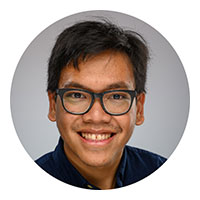
he/him/his
Teaching Fellow in Anthropology and the College 2023-2025
Ph.D., Anthropology, University of Chicago
hakimf@uchicago.edu
Rafadi Hakim is a linguistic and sociocultural anthropologist whose research examines how gender, kinship, and religion emerge as relational categories through uses of language in everyday social interaction. His current book project, Togetherness: Language, Relationality, and the Politics of Exchange, is based on ethnographic fieldwork among Protestant church congregations and women’s co-operative credit associations in Kupang, eastern Indonesia. His second project, based in the United States, investigates how queer forms of kinship are enacted through storytelling practices.
Michelle Johns 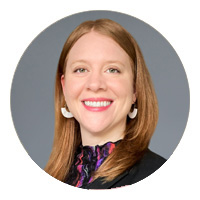
she/her/hers
Senior Research Scientist, Academic Research Centers, NORC
Ph.D., Health Behavior and Health Education, University of Michigan, Ann Arbor
johns-michelle@norc.org
Michelle M. Johns is a Senior Research Scientist in the Academic Research Centers of NORC at University of Chicago. Dr. Johns' work focuses on how stigma and resilience shape the lives of LGBTQ+ communities, and her research employs qualitative and quantitative methodologies to assess critical questions about LGBTQ+ identities and experiences of minority stress, violence victimization, mental health, and sexual health over the life course. Dr. Johns has worked in multiple institutional settings and across sectors, including the CDC Division of Adolescent and School Health, the Center for Sexuality and Health Disparities at the University of Michigan, and Howard Brown Health Center--a non-profit health organization serving Chicago’s LGBTQ+ community. Dr. Johns holds an MPH and PhD in Health Behavior and Health Education and a Certificate in Women’s Studies from the University of Michigan.
keywords: LGBTQ Health, Stigma, Resilience, Health Equity
Caine Jordan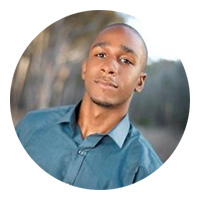
he/him/his
Teaching Fellow in History & Race, Diaspora, and Indigeneity 2024-2026
Ph.D., History, University of Chicago
cainejordan@uchicago.edu
Caine Jordan specializes in the History of Medicine and African-American history. Focusing on African American physicians in the Jim Crow North, his first project examines obstacles to their professional advancement, their development and use of counter-institutions for professional and patient advocacy, and their creation of public health outfits for the distribution of care to disadvantaged communities. His second project zeroes in on the efforts of a catholic Black woman physician in Hereford, Texas, providing gynecological and general medical care to Mexican migrants in the 1960s. He earned his doctoral degree in History (2024) at the University of Chicago.
Jeffrey Lockhart 
he/they
James S. McDonnell Postdoctoral Fellow 2022-2024
Ph.D., Sociology, University of Michigan
jlockhart@uchicago.edu
Lockhart is a James S. McDonnell Postdoctoral Fellow in the Department of Sociology and the Knowledge Lab. He is also an Associate at Harvard University's GenderSci Lab. Lockhart received a PhD in Sociology from the University of Michigan, and an MPhil in Multi-Disciplinary Gender Studies from the University of Cambridge. His research interests include the scientific and technical construction of sex and sexual difference.
keywords: sex; gender; sexuality; science and technology studies; sociology of knowledge; computational social science
K. Bellamy Mitchell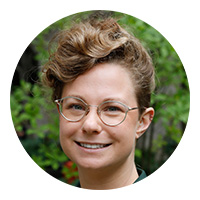
they/them
Postdoctoral Teaching Fellow in the Social Sciences 2024-2026
Ph.D., English Language and Literature and in the Committee on Social Thought, University of Chicago
bellamy@uchicago.edu
I teach and research 20th and 21st Century American, Canadian, and Indigenous literature and art, in conversation with theories of affect and emotion, psychoanalysis, critical gender, race, and sexuality studies, and theories of language and law. My book project, A Poetics of Apology, theorizes apology as a capacious genre by reading precisely those apologies which are often dismissed as such—defense speeches, off-the-cuff quotidian apologetics, and infelicitous and ironic apologies—in order to examine the ways that this genre is used to a variety of effects in politics, literature, and daily life, apart from the generic expectation of producing forgiveness or closure. My current research develops the concept of structurally apologetic subject positions and their subversive potential, by considering how gendered performances, queer sociality, and minoritized populations employ apologetic (or unapologetic) postures to mobilize and make politically productive their experiences of being interpolated into maintaining dominant comfort and conversational flow.
Corbin Page 
he/him/his
Teaching Fellow in the Social Sciences 2023-2025
Ph.D., History, University of Chicago
corbinp@uchicago.edu
Corbin Page is a postdoctoral Teaching Fellow in the Social Sciences collegiate division. He studies legal history, the history of criminal law, civil detention, and the human sciences. His scholarship weaves together legal, intellectual, and carceral history to examine how states and the national government categorized, regulated, and punished perceived sexual deviation and danger throughout the twentieth century.
Stephanie Painter 
She/Her/Hers
Teaching Fellow in History 2023-2025
Ph.D., History, University of Chicago
stephanie3@uchicago.edu
I am a scholar who writes about the remarkable lives of non-elite women in early modern Chinese history. My scholarship reclaims violence as an instrument of women’s power. Turning to the extraordinary to unlock new possibilities for our understanding of the everyday, my book project entitled, What She Had, What She Wanted: Women’s Defiance in Late Imperial China, explores the testimonies of 152 women sentenced to death for killing their husbands. The impressions that these “female criminals (fanfu 犯婦)” left on the archive move us beyond an image of women as collaborators in the reproduction of strong patriarchies, making it possible to see the diversity of ways women pushed against and broke through this gender system, and has allowed me to argue that we have underestimated the role of ordinary women’s expansive emotional, material, and working lives in shaping traditional Chinese society.
Eunhee Park
she/her/hers
Postdoctoral Instructor in the History 2024-2026
Ph.D., History, University of Wisconsin-Madison
eunheep@uchicago.edu
PI am a cultural historian of the Cold War Asia. My scholarly vision is to reframe Cold War-era historical narratives by focusing on women’s labor and the family unit, demystifying the hegemonic place the US occupies within Korean and East Asian history, and redefining the parameters of domesticity. Since earning my Ph.D. in modern Korean history at the University of Wisconsin-Madison, I have taught various courses related to Korea and Asia, addressing history, gender, culture, society, and politics at CSU-Chico, Vytautas Magnus University, Lithuania, Seoul National University, and Soongsil University. Before joining the University of Chicago, I finished a postdoctoral fellowship at the Zvi Yavetz School of Historical Studies at Tel Aviv University. I worked as an HK research professor at the Institute for the Study of Korean Modernity at Yonsei University in South Korea. Since coming to the University of Chicago, I have taught modern Korean history, women's economy, and capitalism. I am currently working on my first book project, which reorients domesticity to housewives’ cultural and economic tactics, exposing the centrality of women’s ingenuity in finance, money, and production as a social, cultural, and economic substrate that critically shaped the postwar South Korean state economy.
Natalie Reinhart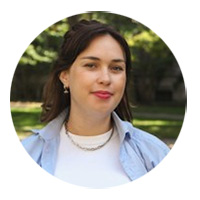
she/her/hers
Harper-Schmidt Postdoctoral Fellow and Collegiate Assistant Professor
Ph.D., Anthropology, Columbia University
nreinhart@uchicago.edu
Natalie Reinhart is a Harper-Schmidt Fellow in the University of Chicago Society of Fellows and a Collegiate Assistant Professor in the Social Sciences Collegiate Division at the University of Chicago. She received her Ph.D. in Anthropology from Columbia University in 2024. Her research focuses on legal categories of personhood, gender, and sexuality in former plantation slave societies, and the retention of said categories in contemporary legal frameworks and debates. Regionally, she specializes in the Anglophone Caribbean and the U.S. South, where she focuses on rights-based protections and their relationship to gendered and racial constructions of deviance and vulnerability.
Connor Strobel 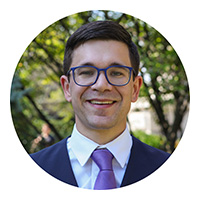
he/him/his
Harper-Schmidt Fellow in the Society of Fellows 2022-2026
Ph.D., Sociology, University of California, Irvine
strobel@uchicago.edu
Professor Connor "Noor" Strobel is a Harper-Schmidt Fellow in the Society of Fellows and Collegiate Assistant Professor in the College, here, at the University of Chicago. A sociologist by training, his research is generally interested in contested identities --- how our identities become sources of personal and group conflict. He is an internationally recognized expert on the social dynamics of eating disorders and has written widely on other topics including the politics of deviance, debates within Islam feminism, and the rules of speech on social media platforms. Professor Strobel’s first co-authored book titled The Politics of “Perverts”: The Political Attitudes and Actions of Non-traditional Sexual Minorities is forthcoming with NYU Press. His work has been published or is forthcoming in journals such as Gender Issues, The International Journal of Environmental Science and Public Health, and Sociology Compass. Professor Strobel’s research and student advocacy has been covered by the media outlets such as the LA Times, New York Times, PBS Newshour, San Francisco Chronicle, and the Eating Disorder Association of Ireland.
keywords: Gender; Eating Disorders; Politics and Sexuality; Digital Methods; Islamic Feminism